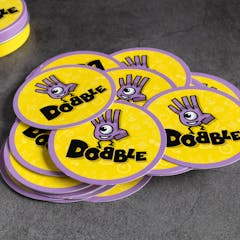
Articles on Mathematics
Displaying 41 - 60 of 542 articles

Statistics show how a change of approach by England’s team marks a dramatic break with the history of Test cricket.

Many of the amino acids that make up proteins are encoded by genetic material in more than one way. An information theorist explains how principles of nature may account for this variance.

Math is more than memorizing times tables and doing homework problems. It is woven into more aspects of your life than you might think.

Any activity that you and your child enjoy can be educational, sometimes with just small tweaks.

College students can benefit from not taking math courses in their freshman year, new research shows.

A new screening programme will increase five-year survival for people with lung cancer. But here’s what that really means.

A new analysis of standardized test scores from elementary schools in Michigan pinpoints when during the pandemic students fell most behind.

In 1993, a British mathematician solved a centuries-old problem. But he couldn’t have done it without the help of many other mathematicians, both historical and modern.

Our research found a multi-million pound scheme to boost maths learning was under-used and had minimal impact on practice.

The arrangement of leaves on most plants follows a mathematical pattern – new research sheds light on how it evolved.

Conventional mathematical approaches to help us make decisions have key flaws.

Swedish mathematician Per Enflo famously received a live goose for settling a difficult unsolved problem. Has he done it again?

From ‘slacking’ to ‘stalling’, ‘faking’ and ‘mimicking’, students use a wide variety of behaviours to avoid doing their maths lessons.

Integrated computing enables teachers to incorporate basic programming skills into K-12 students’ regular math, science and language arts classes.

We found you can have too much of a good thing - psychological stimulation.

The idea that the least skilled are the most unaware of their incompetency is pervasive in science and pop culture. But a new analysis of the data shows that the Dunning-Kruger effect may not be true.

Teachers judged the same math work differently based on whether the work was associated with male or female names.

Dobble is a card game that originated in France in 2009. It involves observation, articulation and speed.

In the late 16th century, new mathematical concepts were transforming perceptions of the world. Shakespeare’s plays helped audiences to process these changes.

It’s not entirely accurate to say that you’re more likely to die in a car accident than in a plane crash. Chances are, you’re not the average person.
